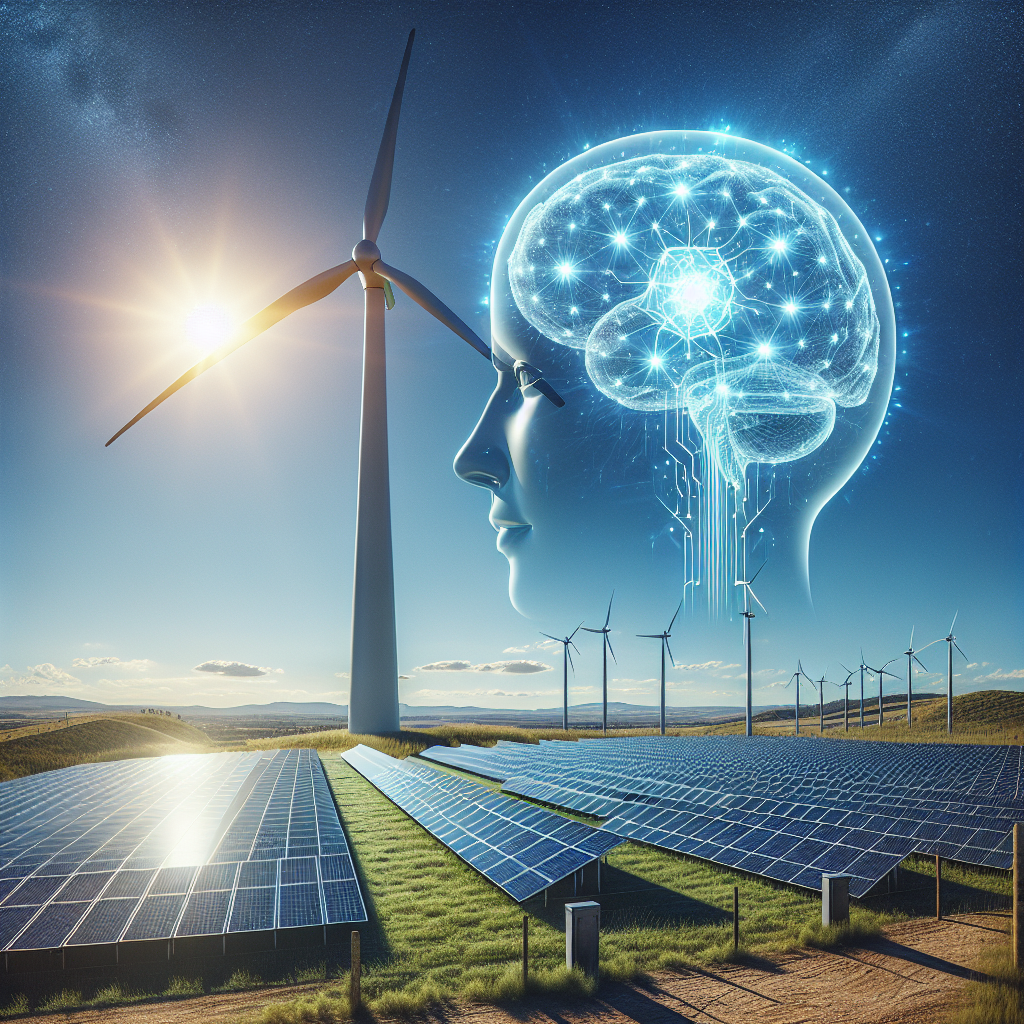Artificial Intelligence (AI) has proven to be a game-changer in various industries, including renewable energy systems. With the increasing focus on sustainability and the need to reduce carbon emissions, AI applications in renewable energy systems have become more prevalent in recent years. These applications have the potential to optimize energy production, improve efficiency, and reduce costs in the renewable energy sector. In this article, we will explore the various AI applications in renewable energy systems and their benefits.
AI Applications in Renewable Energy Systems
1. Predictive Maintenance: AI can be used to predict maintenance needs in renewable energy systems, such as wind turbines and solar panels. By analyzing data from sensors and historical maintenance records, AI algorithms can predict when equipment is likely to fail and schedule maintenance before it occurs. This can help prevent costly downtime and improve overall system reliability.
2. Energy Forecasting: AI algorithms can be used to forecast energy production from renewable sources, such as wind and solar. By analyzing weather data, historical energy production, and other relevant factors, AI can provide accurate predictions of energy output. This information can be used to optimize energy storage, grid management, and energy trading.
3. Grid Optimization: AI can help optimize the operation of renewable energy systems connected to the grid. By analyzing real-time data from sensors and grid infrastructure, AI algorithms can adjust energy production and consumption to match grid demand. This can help reduce grid congestion, improve system stability, and increase the integration of renewable energy sources.
4. Asset Management: AI can be used to optimize the performance of renewable energy assets, such as wind farms and solar parks. By analyzing data from sensors and monitoring equipment, AI algorithms can identify potential issues and recommend corrective actions. This can help maximize energy production, extend asset lifespan, and reduce maintenance costs.
5. Energy Trading: AI algorithms can help optimize energy trading in renewable energy markets. By analyzing market data, weather forecasts, and energy production data, AI can identify profitable trading opportunities and make real-time trading decisions. This can help renewable energy producers maximize revenue and improve market participation.
Benefits of AI Applications in Renewable Energy Systems
1. Improved Efficiency: AI applications can help optimize energy production, storage, and consumption in renewable energy systems. By analyzing data and making real-time decisions, AI algorithms can improve system efficiency and reduce energy waste.
2. Cost Reduction: AI applications can help reduce operational costs in renewable energy systems by optimizing maintenance schedules, energy production, and asset management. This can lead to lower maintenance costs, improved asset performance, and increased revenue.
3. Increased Reliability: AI applications can help improve the reliability of renewable energy systems by predicting maintenance needs, optimizing grid operation, and managing energy production. This can help reduce downtime, improve system stability, and increase overall system reliability.
4. Sustainability: AI applications can help increase the sustainability of renewable energy systems by optimizing energy production and consumption. By maximizing energy output and minimizing waste, AI can help reduce carbon emissions and promote a more sustainable energy future.
FAQs
Q: How is AI used in wind energy systems?
A: AI is used in wind energy systems to optimize turbine operation, predict maintenance needs, and forecast energy production. By analyzing data from sensors and historical records, AI algorithms can improve turbine performance and reduce maintenance costs.
Q: Can AI help improve the efficiency of solar energy systems?
A: Yes, AI can help improve the efficiency of solar energy systems by optimizing energy production, storage, and consumption. By analyzing data from sensors and weather forecasts, AI algorithms can maximize solar energy output and reduce energy waste.
Q: How does AI benefit the renewable energy sector?
A: AI benefits the renewable energy sector by improving efficiency, reducing costs, increasing reliability, and promoting sustainability. AI applications can help optimize energy production, forecast energy output, and manage grid operation in renewable energy systems.
In conclusion, AI applications have the potential to revolutionize the renewable energy sector by improving efficiency, reducing costs, and promoting sustainability. By leveraging AI algorithms to optimize energy production, forecast energy output, and manage grid operation, renewable energy systems can become more reliable and cost-effective. As the demand for clean energy continues to grow, AI will play an increasingly important role in shaping the future of renewable energy systems.

